Regulation Theory and Australian Capitalism
Studies in Social and Global Justice
Series Editors:
Ben Holland, Lecturer in International Relations, The University of Nottingham
Tony Burns, Associate Professor, The University of Nottingham
As transnational interactions become more prevalent and complex in our interconnected world, so do the questions of social justice that have often featured in political discourse. From new debates in human rights and global ethics to changing patterns of resistance and precarity in the global economy, via an interrogation of the impact of climate change, Studies in Social and Global Justice publishes books that grapple with a broad array of critical issues faced in the world today.
Labour and Transnational Action in Times of Crisis, edited by Andreas Bieler, Roland Erne, Darragh Golden, Idar Helle, Knut Kjeldstadli, Tiago Matos and Sabina Stan
A Human Right to Culture and Identity: The Ambivalence of Group Rights, by Janne Mende
Exploitation: From Practice to Theory, edited by Monique Deveaux and Vida Panitch
Social Institutions and the Politics of Recognition: From Hegel to the Present, by Anthony Burns (forthcoming)
Regulation Theory and Australian Capitalism, by Brett Heino
Regulation Theory and Australian Capitalism
Rethinking Social Justice and Labour Law
Brett Heino
Published by Rowman & Littlefield International Ltd
Unit A, Whitacre Mews, 2634 Stannary Street, London SE11 4AB
www.rowmaninternational.com
Rowman & Littlefield International Ltd is an affiliate of Rowman & Littlefield
4501 Forbes Boulevard, Suite 200, Lanham, Maryland 20706, USA
With additional offices in Boulder, New York, Toronto (Canada), and Plymouth (UK)
www.rowman.com
Selection and editorial matter Brett Heino 2017
Copyright in individual chapters is held by the respective chapter authors.
All rights reserved. No part of this book may be reproduced in any form or by any electronic or mechanical means, including information storage and retrieval systems, without written permission from the publisher, except by a reviewer who may quote passages in a review.
British Library Cataloguing in Publication Data
A catalogue record for this book is available from the British Library
ISBN: HB 978-1-7866-0355-5
Library of Congress Cataloging-in-Publication Data
Names: Heino, Brett, author.
Title: Regulation theory and Australian capitalism : rethinking social justice and labour law / Brett Heino.
Description: Lanham, Maryland : Rowman & Littlefield International, 2017. |
Series: Studies in social and global justice | Includes bibliographical references and index.
Identifiers: LCCN 2017040649 (print) | LCCN 2017041120 (ebook) | ISBN 9781786603579 (Electronic) | ISBN 9781786603555 (cloth : alk. paper)
Subjects: LCSH: Labor laws and legislationAustralia. | Social JusticeAustralia. | Social justice. | Labor laws and legislation.
Classification: LCC KU1224 (ebook) | LCC KU1224 .H45 2017 (print) | DDC 344.9401dc23
LC record available at https://lccn.loc.gov/2017040649

The paper used in this publication meets the minimum requirements of American National Standard for Information SciencesPermanence of Paper for Printed Library Materials, ANSI/NISO Z39.481992.
Printed in the United States of America
Contents
Acknowledgements
This book would not have been possible without the help I have received from many quarters. I am deeply indebted to Associate Professor Andrew Frazer, whose encyclopaedic mind, ability to recall the most amazing range of facts and high standards have been invaluable in guiding my research and writing. I am equally grateful to Associate Professor Di Kelly, who supported the development of my ideas and bolstered my morale with her confidence in my overall vision.
I owe thanks to the many people who have helped me in conducting archive research. In particular, I would like to thank the staffs of the Noel Butlin Archives Centre, the State Library of New South Wales, the Fair Work Commission Library and the University of Wollongong Library.
I would also like to express my gratitude to my colleagues in the University of Wollongong School of Law, especially Yvonne Apolo, whose insights helped me identify and correct flaws and who provided valuable feedback in the development of my concepts. Thanks are also due to Dr. James Dahlstrom and Dr. Luke Gliganic, who were fellow travellers on this road.
Lastly, chief thanks belong to my wife and soulmate, Erin. It isnt too much to say that without her this book would not have happened.
Chapter 1
Introducing Labour Law
The ever-changing forces of society incessantly mould and transform the law and yet it pretends to stand aloof and prides itself on its immutability in a tumultuous world. While it seems to be a spectator of the great social drama, serene and imperturbable, it suffers all the agonies and fights all the struggles of an actor in the play.
There are a few components of a capitalist society that penetrate as deeply and profoundly into the lives of the people as law. Capitalism is legalised to a degree that is historically unprecedented. The very form of bourgeois law is premised on its universality and abstraction, a reality grasped by Kahn-Freund. In a society where everyone is considered an abstract, de-classed juridical citizen, law becomes the medium through which these citizens relate to each other and to the state. Within this pervasive and immensely powerful social force, labour law forms an especially crucial segment. The fact that within capitalism labour assumes a generalised commodity form means that the sale and purchase of labour power, together with the conditions on which it is exploited, becomes an explicitly legal matter. The resultant body of labour law is a most complex amalgam, with the law of things, namely property and contract law, attempting to commodify and regulate a living, breathing and thinking subject, the proletarian. This domain of law is an object of class struggle in its own right, as labour and capital attempt to impress their own competing political economies on the legal form.
Given this significance of labour law, the dramatic changes in the labour law regimes of many Western states since the 1980s are a matter of tremendous importance, particularly for the working class. This process of legal evolution has been a phenomenon with deep ramifications for social justice. The dissolution of productive industry, the fragmentation of employment categories, the rise of profound employment precarity and an increasingly hostile legal environment for trade unionism have been powerful impulses in the creation of key social justice issues, including income inequality, the rise of a new working underclass, entrenched unemployment and the marginalisation of organised labour.
Despite its importance, however, the nature of labour law change remains poorly theorised. The disciplines of labour law and industrial relations are largely beholden to an empiricist method, with the result that they are usually unable to explain why labour law has changed in the way it has, or elucidate the abstract functions it fulfils within different models of development. By contrast, the considerable body of political-economic work dealing with the evolution of capitalism in Western states over the past several decades typically pays scant attention to the issue of law beyond the descriptive account that neo-liberalism has been associated with legal change. This myopia is often a function of a lack of a sophisticated theory of law as a

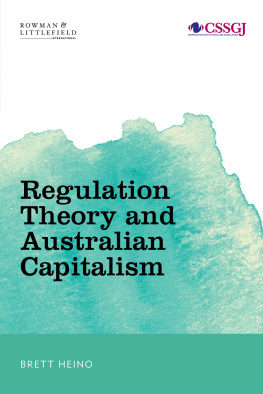

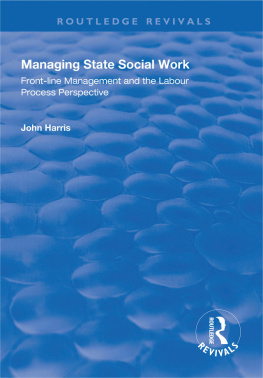
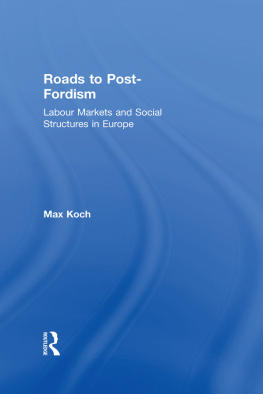
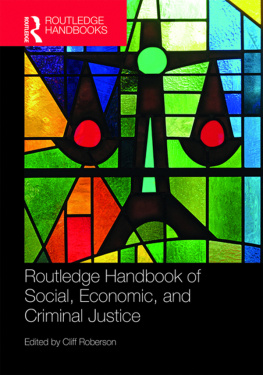
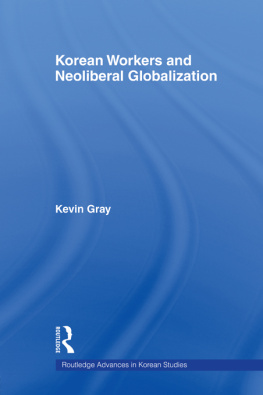
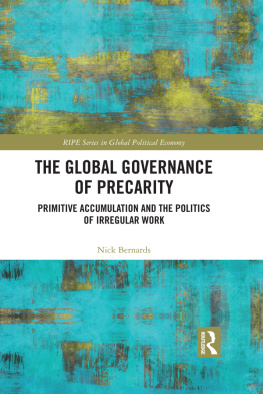
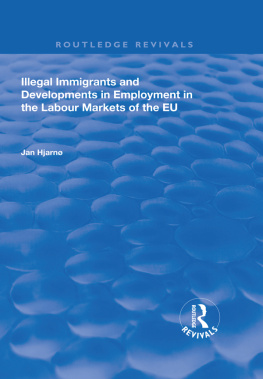
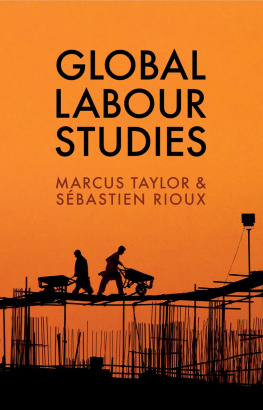
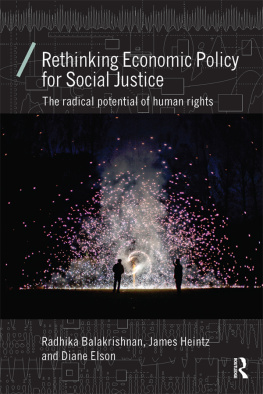

 The paper used in this publication meets the minimum requirements of American National Standard for Information SciencesPermanence of Paper for Printed Library Materials, ANSI/NISO Z39.481992.
The paper used in this publication meets the minimum requirements of American National Standard for Information SciencesPermanence of Paper for Printed Library Materials, ANSI/NISO Z39.481992.